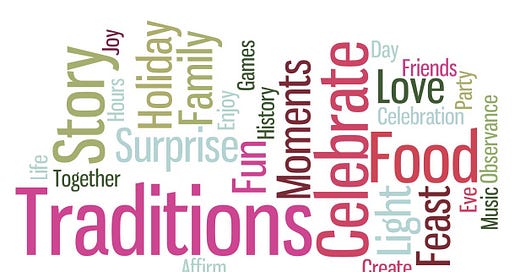So the other day I was thinking about how I would explain to Cayden, my three-year-old, why we don’t use instruments on Sunday morning. Since there is no biblical reason to not use them, I need to have a good reason why. And I think the best answer I can give is that it is just our tradition, a tradition we enjoy and can be proud of.
It’s Not Always Change for the Sake of Change
Whether it’s keyless entry to cars or tap-to-pay, before we embrace the latest changes we like to complain that these changes are just change for the sake of change. I’ve often thought to myself that these changes may just be to trick us into buying more stuff when we don’t need to. They change the kind of charging cable or how things connect to force you to buy the newest ones.
In churches, the same things happen. Someone suggests a change and someone else says that these are just changes for the sake of changes. Now, change for the sake of change isn’t necessarily a bad thing. Sometimes we need to break the routine and add something fresh into our lives, businesses, or whatever, and change for the sake of change is a good way to do that.
But I think there are deeper reasons why people may want to change “church stuff.” If you were raised with the idea that everyone has to worship without instruments (which isn’t a valid opinion), then your desire to worship with an instrument may come from the very understandable need to separate yourself… not from the tradition… but from the attitude that accompanied the tradition.
That’s one reason why I personally cringe at the denominational distinction “Church of Christ.” Every time someone asks me one of those questions, a huge part of me wants to distance myself from this particular denominational identifier, which isn’t Biblically necessary, and have some sort of neutral “name” on our sign.
It’s not that I don’t like my heritage; I love the Stone-Campbell movement! But it’s that I don’t always enjoy being associated with the exclusivity, toxicity, and “we’re the only ones going to heaven” attitude I had for twenty-five years that is implicit in this particular sectarian distinction.
But instead of leaving, I will stay “Church of Christ” as long as I can to work from the inside edge of the outside. As long as people like you keep reading my blogs and listening to my podcasts and sending your encouraging messages, I’ll know my labor isn’t in vain (shout out to my followers from the LNIV days).
So, how do I answer Cayden when he eventually starts asking why we do things differently?
Embracing Tradition as Tradition
Instead of leaning on my Puritan and Calvinist roots by arguing for a pattern of worship, I think instead I’ll tell him that a cappella music, weekly communion, and even our name are our beloved traditions. They aren’t Biblically mandated, so others who don’t do them aren’t wrong. In fact, other people’s traditions are beautiful as well. It’s just that this is our tradition.
I think this does a few things.
First, it enables us to honor other traditions equally. I can go to an instrumental service and fully participate. It may not be my preferred method of worship, but I can celebrate the fact that it is my brothers and sisters’ preferred method. I can get just as much out of witnessing their love for Christ and saying “amen!” to their joy as I can worshiping in my preferred way.
Second, I can pass my traditions on in love, not fear. My attitude doesn’t have to be “this is what we must do…or else.” And my attitude doesn’t have to be “this is what you have to do/ prefer, son.” Instead, I can hold it loosely because it is a beloved tradition, but it is just a tradition, one of many avenues to God through Christ. So I can hold it close while making room for others at the table, and if necessary, I can alter my own tradition to accommodate my Christian family.
Third, I can actually enjoy it. I don’t have to worry about anxious questions like whether or not songbooks and pitch pipes are biblical. I can sing my heart out knowing that God accepts my worship just as much as he does the organ-accompanied or band-led worship down the road.
So when we admit that our traditions are traditions and don’t spend so much unnecessary time trying to justify them or demand them of others using the Bible, we can embrace them as sacred traditions while losing the toxic attitudes and the “because I told you so” explanations.
If you have to step away from some of these because they are triggering or unhelpful to you, that is totally fine, but if you want to embrace them, there is a way to do that without falling into the “my way or the highway” trap.




